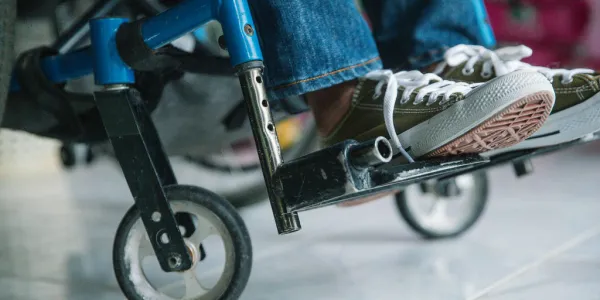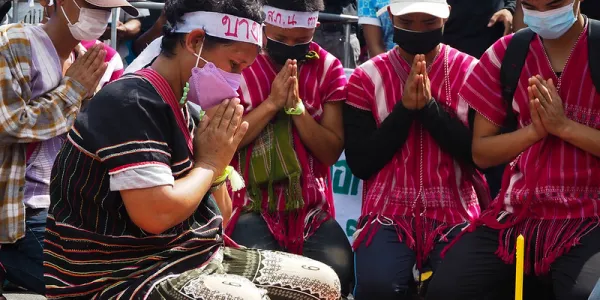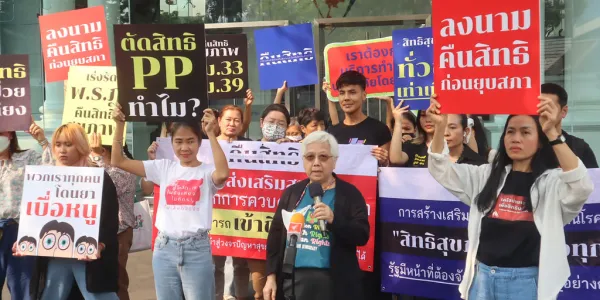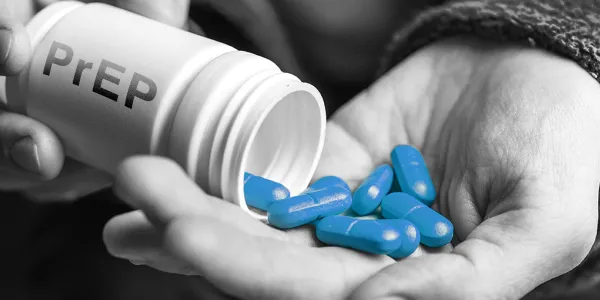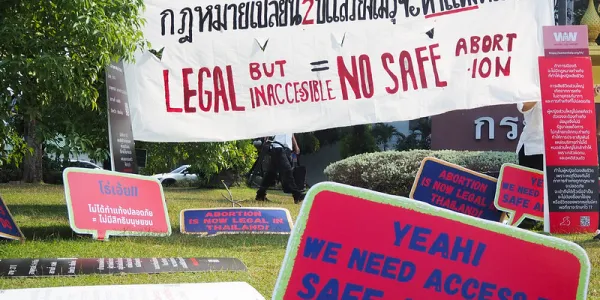By Nalutporn Krairiksh and Kotcharak Kaewsurach |
Many people with disabilities, especially those with spinal cord issues, suffer from pressure sores. Small abrasions can become infected, open wounds, which can make rehabilitation more difficult and make people with disabilities more dependent on others. Meanwile, securing welfare to cover the cost of medicine, rehabilitation and the use of medical facilities remains an issue.
By Pitchaya Tarajit, Anna Lawattanatrakul, and Nuttaphol Meksobhon |
During the height of the pandemic, Thailand saw a growing number of reports of university students committing suicide, while others suffer from stress and mental health problems due to sudden changes in their lives as the country went into lockdown. Although mental health issues were on campus before Covid-19 arrived, the pandemic made the problems more visible. Now, students are calling for universities to adopt proactive mental health support measures, but with the shortage of mental health professionals, implementing a long-term solution may not be easy.
By Prachatai |
Following the death of an indigenous activist from dengue fever, indigenous and community rights groups are demanding that the Ministry of Public Health take responsibility, saying that her death is the result of racial discrimination and negligence by a local hospital.
By Prachatai |
<p>A network of civil society organizations has filed petitions with the National Health Security Office (NHSO) and the Bhumjaithai Party over budget restrictions preventing people outside the Universal Health-Care Coverage scheme from accessing some healthcare services.</p>
By Anna Lawattanatrakul and Sicha Rungrojtanakul |
<p>New orders issued by the Ministry of Public Health restricting the HIV prevention budget and requiring community-based clinics to be supervised by a government medical facility have drawn criticism from civil society due to concerns that the new regulations would limit their ability to provide HIV testing and preventative medication to at-risk groups.</p>
By Anna Lawattanatrakul |
<p>Two years after Thailand passed an amendment to the Criminal Code legalising abortion up to the 12th week of pregnancy, access to services remains difficult due to lack of information and facility and prejudice from medical personnel, while the Ministry of Public Health has refused to cover abortion fees for people not covered by the “Gold Card” universal healthcare scheme.</p>
<p>The police have summoned for questioning the leaders of a protest against revisions of the healthcare law. Meanwhile, the authorities have announced that the amendment process will go ahead despite opposition from numerous groups. </p>
<p>On 18 June 2017, about 300 members of the People's Health Systems Movement (PHSM) and other associated organisations gathered at a public forum on the amendment of the 2002 National Health Security Act at the Centara Government Complex Hotel on Chaengwattana Rd., Bangkok.</p>

